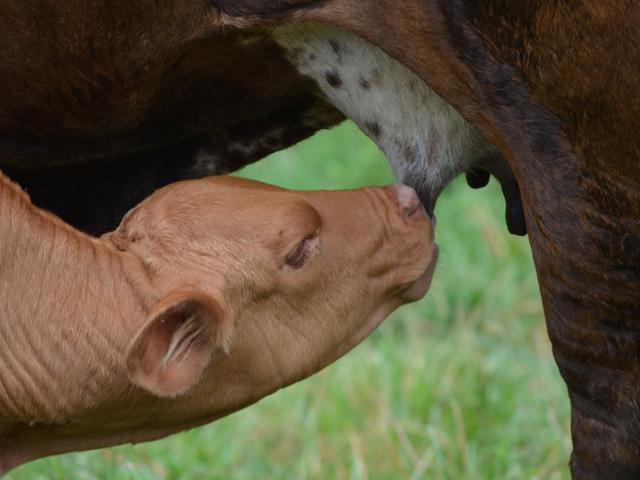Ask the Vet
Hereditary Teat Condition Can Confuse Nursing Calves
READER QUESTION:
We have noticed several of our younger cows and heifers have extra teats on their bag. We have never noticed this before. Is this a problem, and if so, what do we need to do?
DR. KEN MCMILLAN'S ANSWER:
These extra teats are called supernumerary teats. They are hereditary and have a complex and not fully understood inheritance involving several genes. So, this condition may have been introduced into your herd in the bulls or the cattle you've added. They are common findings in both beef and dairy cattle. One study finds an almost 10% incidence of this in Holstein cattle.
Most commonly, these supernumerary teats are found in pairs, behind the rear teats. They do not produce milk, and they are not a problem. They can even occur between the teats, making them more difficult to spot. Some will produce small amounts of milk. This condition can be a problem if it interferes with a newborn calf's ability to latch on and nurse the teat or if they fixate on nursing one of those supernumerary teats.
More commonly, these are a concern in dairy cows, where they may interfere with the milking machine. They can make cleaning and disinfecting the udder more difficult and increase the incidence of mastitis. These nonfunctional teats are more likely to become infected since neither a calf nor a milking machine, can milk them out. For this reason, they are often removed from dairy calves while they are young, but it's probably not necessary in beef cattle.
**
Editor's Note: Please contact your veterinarian with questions pertaining to the health of your herd or other animals. Every operation is unique, and the information in this column does not pertain to all situations. This is not intended as medical advice but is purely for informational purposes.
Write Dr. Ken McMillan at Ask the Vet, 2204 Lakeshore Dr., Suite 415, Birmingham, AL 35209, or email vet@progressivefarmer.com.
(c) Copyright 2023 DTN, LLC. All rights reserved.
P[L1] D[0x0] M[300x250] OOP[F] ADUNIT[] T[]






